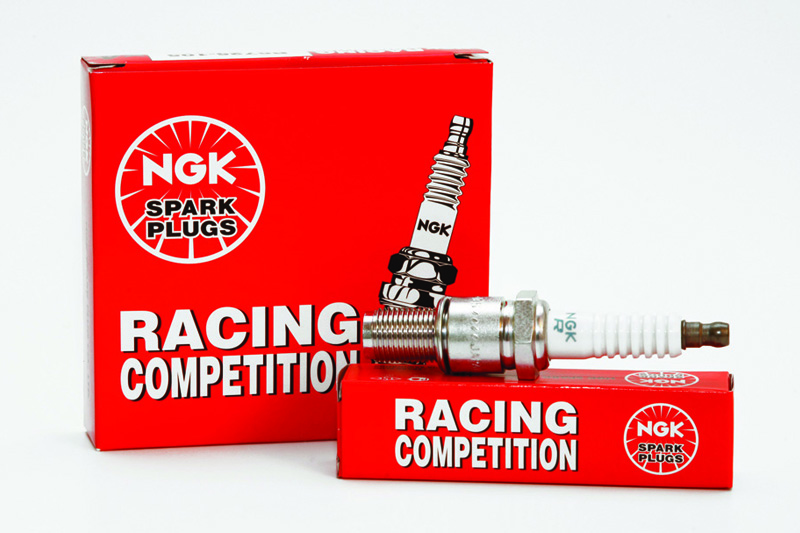NGK claims that countless motorsport teams rely on the company for the supply of its quality, reliable spark plugs. But would the racing spark plugs that NGK supplies to factory teams be suitable for regular road cars?
Often distributors and workshops are confronted with the question: is it possible to increase the performance of a road engine by simply installing racing spark plugs? As long as you can screw a spark plug into the cylinder head, will it match the demands of the engine? Is it as simple as that? NGK has a clear answer: it is ‘no’, and with good reason; racing places very special demands on a spark plug, engines run at higher speeds and operate with higher compressions. Combustion temperatures and vibrations substantially surpass the conditions inside an ordinary engine.
A standard spark plug will not be able to take these extreme strains for very long. Racing spark plugs on the contrary are designed not only to be able to withstand these harsh conditions, but they are, for instance, usually selected to dissipate a greater amount of heat from the combustion chamber. In doing so, they safeguard that the critical temperature threshold of 850°C is not exceeded at the centre electrode. That is vital, because if the temperature exceeds this maximum, uncontrolled glow ignitions may occur. A racing spark plug’s ceramic insulator shares a larger contact surface with the housing, so that the spark plug dissipates more heat to the cylinder head. Such spark plugs are also referred to as cold spark plugs and have a higher heat rating.
However, installing a racing spark plug in a road vehicle is not a good idea. The racing spark plug can simply withdraw too much heat from an ordinary engine and the spark plug, therefore, only seldom reaches its self-cleaning temperature of 450°C, the temperature at which carbon deposits at the insulator start to burn away.
The result is a sooted spark plug which leads to misfires. This problem even increases in case of frequent stop-and- go situations, cold starts or if the car is used mainly for short distances. These demands may be characteristic for our daily road traffic, but racing spark plugs are not designed to fulfil these needs.
Iridium IX
NGK claims to have some good news though: in the search of a way to increase performance of an engine, there is an alternative to racing spark plugs, which is suitable for everyday use. The Iridium IX spark plug range from NGK offers racing technology for everybody. The same as most of NGK’s latest racing plugs, the tip of its centre electrode is made of the precious metal Iridium, which features a high melting point and outstanding electrical conductivity. Iridium is well-known and proven for years in the motorsport scene. The centre electrode of an Iridium IX spark plug is as thin as a fingernail and allows more ignitable air- fuel-mixture to reach the spark. The combustion can spread freely towards the periphery of the combustion chamber. The energy yield is, therefore higher. To put in plain terms: throttle response, acceleration and engine efficiency improve noticeably compared to standard electrode types.
There is another reason to prefer Iridium IX spark plugs over standard types, if a vehicle mainly covers short distances, standard spark plugs may soot and misfire, as they are prevented from reaching the already mentioned self-cleaning temperature. The Iridium IX is resistant against sooting, as should electrical current leak away across a carbonised insulator a spark can occur between the centre electrode and the insulator thus helping to burn away carbon deposits.
Sales tip
When replacing spark plugs, your customers should note to ensure to use the prescribed tightening torque when installing the plug. If the spark plug is installed too loose or too tight, damage is possible. The tightening information contained on the individual NGK packaging should be observed, or technicians can refer to the vehicle manufacturers’ recommendations.










